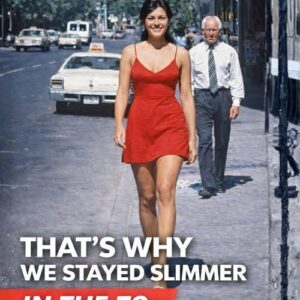Tatiana’s alarm went off at 6:45 every Monday.
The kitchen smelled like oatmeal—grandma was up. Everything seemed normal: ninth grade, lessons, homework, and occasional friend hangouts.
Everything seemed right. However, things were different within.
Tatiana had been told her father was a hero who died before she was born from childhood. She always heard her mother say that. Her grandmother stated that. Easy to believe. They revered him and told the narrative with minimum detail but a gentle voice, as if it were a sacred secret not to be questioned. Her father was “real man,” who “left too soon,” and she was his “greatest legacy.”
She was protected by this tale. Living behind it was easy. She could tell her classmates without shame or pride. Others had fathers who abused them or disappeared, but she had a hero who died for the country. She saw movie clips of a guy in uniform, a furious stare, and a final goodbye to his family before battle. Fantasy mingled with reality.
Tatiana often helped her grandmother shop for food after school. As she aged, Grandma’s legs failed failing. They shared a small table for dinner. These evenings were quiet, but so fragile that one false move could ruin everything.
In a flash, it collapsed.
She lost her mother swiftly to illness. First weakness, then agony, ambulance, exams. Cancer diagnosis. A term that shatters reality. Lena lied as long as she could. After it became impossible, Tatiana took care of her mother by holding her hand in the ward, cooking, running errands, and phoning doctors. All this at fourteen. Her childhood ended early.
While Tatiana slept with her head on the bed, her mother stopped breathing and died softly.
No tears after the funeral. Not immediately. It didn’t appear to affect her. That her mother had left and would return soon. Tatiana waited in the corridor for familiar footsteps in the evenings. Silence never ended.
Her guardian became grandmother. Official documentation, benefits, and allowances were handled legally. The most Svetlana Petrovna could do was hold herself together. She cooked, cleaned, ironed, cuddled. She repeated every night:
Mom watches over us from heaven. Tanya, you have company. Here we are.”
But this “together” weakened. Even with hot heaters, the home cooled. Even when they were together, spaces were empty. Tatiana spent hours by the window staring at the streetlight, her sole steady light. As if its beam obscured the answers.
Tatiana asked a long-brewing inquiry one evening while grandma ironed and she pretended to read her textbook:
“Why did both parents die?”
Her voice shook. No question—just a wail of sorrow. To verify, she spoke them out for the first time. Maybe this suffering was a dream?
Grandma recoiled, dropping the iron. A pause. A worried gaze followed.
It happens sometimes. Premature departures. But we live. We must survive.”
“Both died.” Tatiana’s new magic. She repeated them, wanting to understand. But a suspicion grew—something didn’t feel right.
The morning started as usual. Tatiana wore her grandma’s worn sweater to school early. Her fingers froze in the chill October air.
It felt odd in the building. People watched. Genuinely staring. Some muttered, others looked aside. She was ignored by teachers. Her buddies acted oddly.
Nastya, the school gossip, approached her during break. With empathy and interest, she said:
Tanya, please don’t take offense… Are you aware that your father survived?”
Her heart stopped.
What do you mean?”
Mom observed a homeless man in the park. Pavel was his name. He claims to have known your mother. “Like your father.”
The words emptied. Live,” Pave,” Homeless.”
Tatiana wanted the truth at home that night. Like a fooled person, her voice was harsh and adult.
Grandma initially tried to sidetrack her. Tatiana persisted.
Svetlana Petrovna then told her everything on the sofa. Slowly. No exaggeration.
Pavel was Lena’s youth friend. Both were from the same village and adored each other. He pledged to return from the army. Cold, heartless letter arrived half a year later. He abandoned Lena and the child. Asked her to forget him.
Lena had to leave home. She hid her pregnancy and came to the city to start again. There, Tatiana was born. Pavel never returned. Lena didn’t look—nothing to forgive.
They later learned he married and worked. Then his life flipped. His lowest point. His latter years were spent on the streets. A stranger. Lost. Only a shadow.
“This is your father, Tanya,” granny whispered. “He’s nobody to you. You grew up without him. You became yourself despite him.”
Tatiana observed a police cruiser near the store the next day while heading home. A slumped, worn-out man stood next to it. His matted hair and features were obscured by stubble, grime, and time. Something about his appearance stopped her.
He turned around as the officers brought him to the automobile. Wait a moment. And that second was enough. His misty but familiar gaze pierced Tatiana.
It was him.
Grandma revealed Pavel’s terrible identity at home. His life was real. Indeed, he was homeless.
Tatiana felt angry, hurt, sympathy, and shame. She wanted to scream. She wanted to forget everything. She wanted him dead.
But he lived. He was her dad.
Tatiana arrived at school early on Monday in her old sweater and backpack. The previous blow had not yet passed, but she remained calm. However, class environment shifted. Different looks—judgmental, almost hateful.
“The homeless girl has arrived,” someone murmured behind her as she sat.
The nicknames came in: “daughter of an alcoholic,” “heir to the trash,” “princess from the dumpster.”
Teachers kept their distance. After the homeroom teacher stopped smiling, the deputy headmaster pretended not to notice. Complete silence from once-reliable sources.
The worst part was that no one defended her. The safe environment she previously knew turned on her. No friends or adults responded, “It’s not your fault.”
Before this, Tatiana was a top student: responsible, curious, and hardworking. However, threes replaced fives, essays were graded lower, and class replies were “unconvincing.”
At first, she blamed coincidence, then inattention. But blunders persisted. She softly told grandmother one evening when she went home:
“Can’t take it. I want to switch schools.”
Restrained but apprehensive, Svetlana Petrovna accompanied her to the principal. The reception was cordial yet distant. He said, scarcely looking at his glasses:
“We would assist, but the burden is heavy. She and other emotionally unstable kids cause group conflict. We have several issues.”
No apology followed.
Tatiana left school without going home. Sitting on a park bench, she watched the leaves spin. Children played ball, women pushed strollers. Inside, everything hurt.
Why? Why did she pay for others’ mistakes? Why was her life going apart because of her father? She studied, helped, tried—why not enough?
Sharp as a sword, a thought rose alone:
I’m not my dad. I’m innocent. Why endure for this?”
That thinking changed nothing. The world had concluded she was “the daughter of the wrong one.”
“Adults can be stupid too,” grandma added that evening as Tatiana wailed on her shoulder. “Good and evil are eternal. You’re not bad. They’re weak.”
As someone who valued life, Svetlana Petrovna spoke softly but firmly. She patted her granddaughter’s head like a child.
Tanya, you’ll mature. All these people will be forgotten. Try not to lose yourself. You hear? Do not betray yourself.”
These words saved me. Only one to grasp onto now.
The winter started with a cough. Light, scarcely detectable, deepening with a wheeze. Grandma was first unconcerned: “She caught a cold,” “The weather’s like that.” But the cough worsened, fever, and shortness of
Clinic, X-rays, bronchitis with cardiac problems. A drip, medication, and rest are prescribed. The pension went to medical, leaving little for food.
Tatiana began tracking spending. She meticulously recorded every dime in a notebook. Sometimes she skipped breakfast for medicines. She avoided debt by paying utilities on the final day. Schools became secondary.
Her pale skin, hollow cheeks, and large coat were remarked. Instead of sympathy, mockeries emerged.
Saving on food?Classmate scoffed. Or handing it to dad?”
Girls laughed. Even former good buddies.
Whispers surrounded her jacket’s tattered sleeve. Her backpack’s damaged strap inspired jokes and memes. Tatiana’s friends’ phones showed her eating a bun alone in the schoolyard with the phrase “homeless girl.”
Tatiana quickly recognized the guardianship when the doorbell rang and two women in tight coats with documents arrived at the porch.
“We must talk. Signal received. Need to ask some questions.”
Polite but formal communication. Women inquired about housing, food, and school. The flat was inspected. Grandma tried to mask her cough but failed. Meeting eyes.
Offering temporary housing is possible. In the center. Room, food, help. You would find it easier.”
The floor-glued Tatiana stood up:
“No. I’m staying. Staying with grandma.”
Think about it—it helps, not takes away your life.
She firmly stated, “This is betrayal,” closing the door.
Nighttime tears were shed from helplessness, not dread. She realized she couldn’t defend her loved ones.
One younger brown-eyed woman waited at the stairway. She spun and said:
“You’re smart and strong, girl. Better days are coming. Believe in you.”
She was moved by a stranger’s initial words. These words grounded me during those dismal nights. She was not broken, they said. Not yet.
School was ending. Some students practiced poetry, songs, and hall decorations for graduation. Tatiana was absent from the participation lists.
She listened to the voices in the corner of the class as if she didn’t exist. Invisibility was worse than mockery. As if she were gone.
Her patience ran out. She called Nastya’s mother, Veronika.
“She’s a person too,” she said. “You may dislike her, but she’s not to blame. At least try her.”
Nobody responded.
A literary teacher in charge of the event approached Tatiana at a practice.
“We’ll sing about dads. Very moving. Want to take a verse? Want to?”
Tatiana discreetly took the text. Read it. The words, “Thank you, dad, for love and strength…” evoke grief.
She neatly folded and returned the paper.
“I won’t sing.”
“Why?Surprised, the teacher said.
Because it’s not about me.”
A part of her broke. All years-long pressures collapsed.
“You’re not like that!Nastya yelled. That’s why you didn’t fit! It’s nice your mom died and left you alone!”
Ringing silence. World froze.
Tatiana jumped:
Please don’t say such about her! You dare not! She outperformed you all! Better than you! She never lied, betrayed, or humiliated. She lived—and loved! “You’re an empty shell!” Nothing inside!”
Tears broke the dam. She bolted from class, Slamming the door. She sprinted without considering the road. Just away from these walls, faces, and the venom that had long plagued her school days.
A blast occurred. She spoke for the first time. Loudly. Honestly. For herself. For mother. For her voice, which refused to be quiet.
Tatiana returned to the riverbank, where she felt comfortable. This location had shrouded her under willows since childhood, keeping her quiet. Here, she could be herself. The world didn’t see her, but it didn’t hurt her.
Sitting on the grass, she hugged her knees and watched the river. Her heart was burned out, not cold. It appeared like no pain nor tears remained.
But a shout sprang out:
“Help!”
Hoarse and feeble, the voice was full of anguish. Tatiana jumped. A drowning person struggled in the water behind the willow.
She kicked off her footwear, ran, and leaped into the river without thinking.
The cold jolted. Her breathing accelerated. Swimming helped her overcome numbness and dread. The hand, hair, and scream united to save.
She was hard to drag ashore. Her legs slid, but she didn’t give up. Though drenched and trembling, they were alive.
“How are you…” Tatiana exclaimed.
She murmured, “I don’t know… Thank you,” coughing.
She was Maria. She was 19—a first-year architecture student. She trembled as she said she came here to meet Anton, a man she had been dating for about a year.
“I was going to end it…” she sniffed. “He changed. Became cruel. A stranger. Not his old self.”
Anton proposed a final riverside walk. Unfortunately, something bad happened instead of parting.
Not only had he lost his feelings. A risky game included him. He tried to reach Maria’s father, the regional governor. His gang orchestrated the girl’s disappearance to get her father to sign important construction project agreements.
Maria responded calmly, “He said: ‘Your daddy will sign if he thinks you’re dead,’” but her eyes were still stunned.
Shoreside, they stood. Anton murmured while checking his phone:
It’s done. Time up. Dead people don’t speak.”
She was pushed into the water.
“I barely had time to scream, but someone heard. It was you,” Maria looked at Tatiana, her eyes filled with indescribable gratitude.
Tatiana brought Maria home the next day. She got dry clothes, steaming tea, and an outdated phone to call her dad.
The brief chat was strained.
It’s me, Dad. I live. Sign nothing. It traps. Her voice quiver as they sought to utilize her.
A long pause, scream, and quiet followed in the receiver. Finally, relief:
I’m coming.”
Two hours later, a black jeep approached the residence. A tall man in a strict coat emerged. He ran to his daughter and hugged her hard, crying.
“I almost went crazy…” he murmured.
Maria faced Tatiana:
“She saved me. Without her, I would not have survived…
The governor approached Tatiana gently. Confused, she concealed her hands in her sweater sleeves. He stared at her as if to express something vital, but only nodded. He left clutching his daughter closely.
There were no interviews or headlines. Maria entered Tatiana’s life. The link lasted.
Classes were preparing for graduation. The last bell. Everyone wore clothes with flowers and ribbons. Tatiana attended the entry. A single white ribbon in her hands. No one seemed to be waiting for her. But she came.
She stayed away during the “about dads” song. She closed her eyes. Just stood. However, there was no discomfort inside. Silence only. Calm. Acceptance.
The hall noticed Maria entering. In a light dress, nicely waved hair, and shoes Tatiana wouldn’t have worn. She smiled and wore a tiny bracelet. Tatiana gave it all.
“Let them see you as you are,” Maria urged the day before.
Just before the celebration ended, the doors opened. Regional governor Sergey Nikolaevich entered. The room froze. He confidently approached Tatiana. A red rose bouquet in his hand.
He gave her flowers. Silently. Leaning down, kissed her cheek.
“You’re familiar to me.”
World froze. Everyone watched—teachers, students, parents. Some murmured, “Who is she to him?Some filmed videos. Some couldn’t speak.
Tatiana smiled at one of the females and whispered:
He claimed I’m familiar.
Off she went. Non-running. With honor.
Tatiana and Maria became intimate pals. In the student cafeteria, they discuss architecture and psychology, laugh, quarrel, dream, and live.





